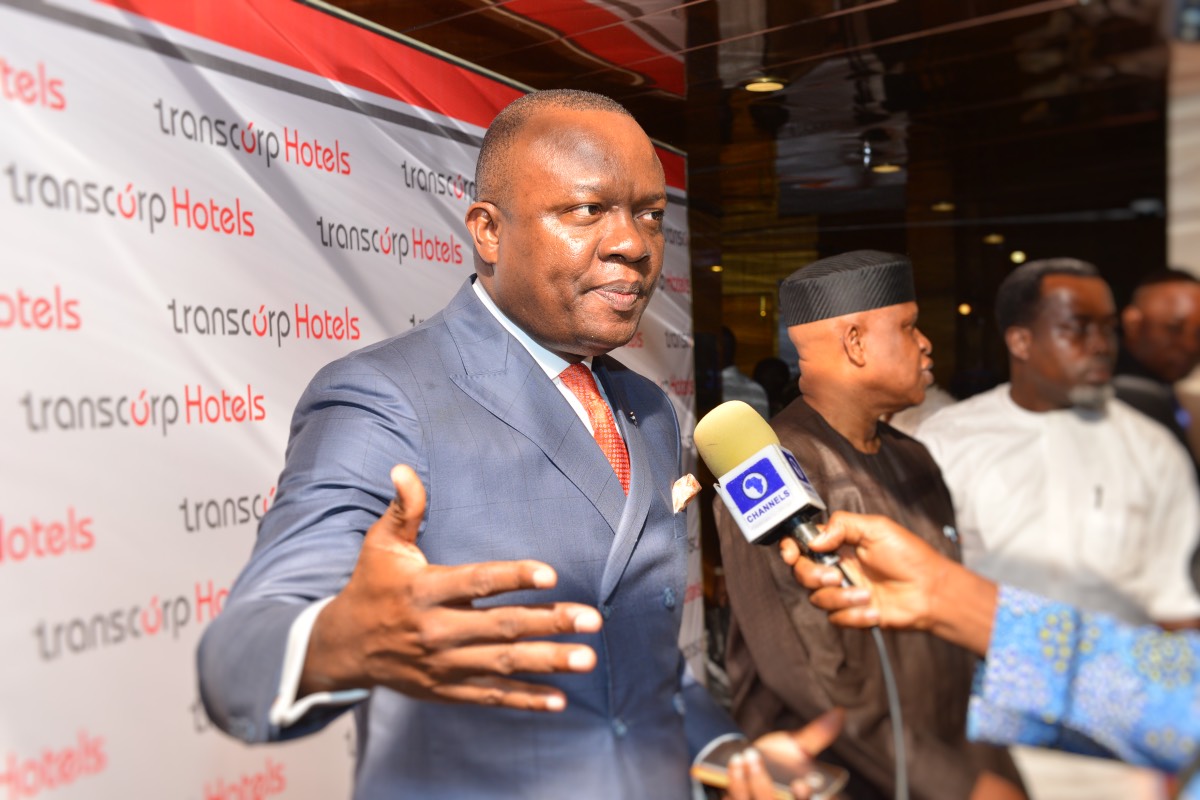Valentine Ozigbo, a Nigerian business mogul and philanthropist, has called for fresh and bold ideas to advance the economy and enhance shared prosperity against the backdrop of the COVID-19 pandemic.
Mr. Ozigbo appeared on the AIT show, Money Live With Nancy on Monday, May 5, 2010, a daily business television programme that discusses topical economic issues.
During the show, Ozigbo said that he believes that the lockdown was lifted too soon, and therefore he called for the government to be strategic and not reactionary in dealing with checking the spread of coronavirus. He said that the government should learn from the approach of other countries such as Taiwan and Ghana.
He believes that to flatten the curve, isolation and a partial lockdown is required. Ozigbo’s idea of a partial lockdown involves enforcing physical distancing and masks, ring-fencing areas with no confirmed cases while allowing limited movement to allow people to earn an income. He also said that the government and the private sector should provide adequate palliatives for the needy and less privileged.
The lockdown measures to contain the COVID-19 pandemic imposed by the Nigerian government in the top cities of Lagos and the Federal Capital Territory were relaxed on Monday. A nationwide curfew from 8 pm to 6 am was imposed in addition to a restriction on the opening time of businesses offering essential services like banks and food sellers.
Ozigbo, who is the immediate past President and Group Chief Executive Officer of Transcorp Plc, sees the need for the government to avoid a second wave of infections, which would not only overburden the country’s health facilities but wipe away the gains made so far.
The respected business leader also mentioned that with regards to the economy, the country is suffering the consequences of bad governance, which the coronavirus pandemic has exacerbated. Ozigbo called for corporate organisations and the government to innovate and apply principles like KAIZEN (Continuous Improvement) which is adopting principles that will allow for the reduction of MUDA (Wastes), MURA (Overburdenness) and MURI (Unevenness); all management principles that improve productivity and cut waste to survive and thrive in these times.
However, Mr. Ozigbo stated that realistically employees and job seekers need to acquire new skills to launch organizations into the era of digitization, strategic foresight, complex problem solving, and critical thinking.







